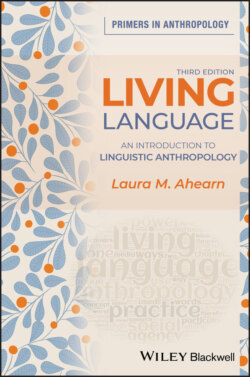Читать книгу Living Language - Laura M. Ahearn - Страница 26
James M. Wilce
ОглавлениеJames M. Wilce’s (1998) ethnography, Eloquence in Trouble: The Poetics and Politics of Complaint in Rural Bangladesh, looks closely at “troubles talk,” or complaints, including the special genre of laments (improvised crying songs) in Bangladesh. The “eloquence in trouble” of Wilce’s title has two meanings: Bangladeshis who resort to laments to describe their suffering are often quite eloquent; and these sorts of laments are becoming less and less common, and therefore represent a genre in trouble – that is, in danger of disappearing. Wilce’s interest in medical and psychological anthropology leads him to pay special attention to the laments of people others label “crazy.” In so doing, Wilce demonstrates how laments are more than just lengthy, monologic complaints; instead, they are esthetic performances and social interactions during which labels can be both attached and resisted by the performer and the audience members, and realities can be “officialized” (1998:201). A focus on linguistic practices such as laments sheds light not only on the experiences of particular individuals’ sufferings, Wilce argues, but also on broader cultural ideas about appropriate and inappropriate ways to speak and act, especially for Bangladeshi women.
What these six very different ethnographies have in common is their insistence that (1) language must not be studied in isolation from social practices or cultural meanings, and (2) questions about social relations and cultural meanings can best be answered by paying close attention to language. The remainder of this book presents a detailed case for each of these two assertions.
